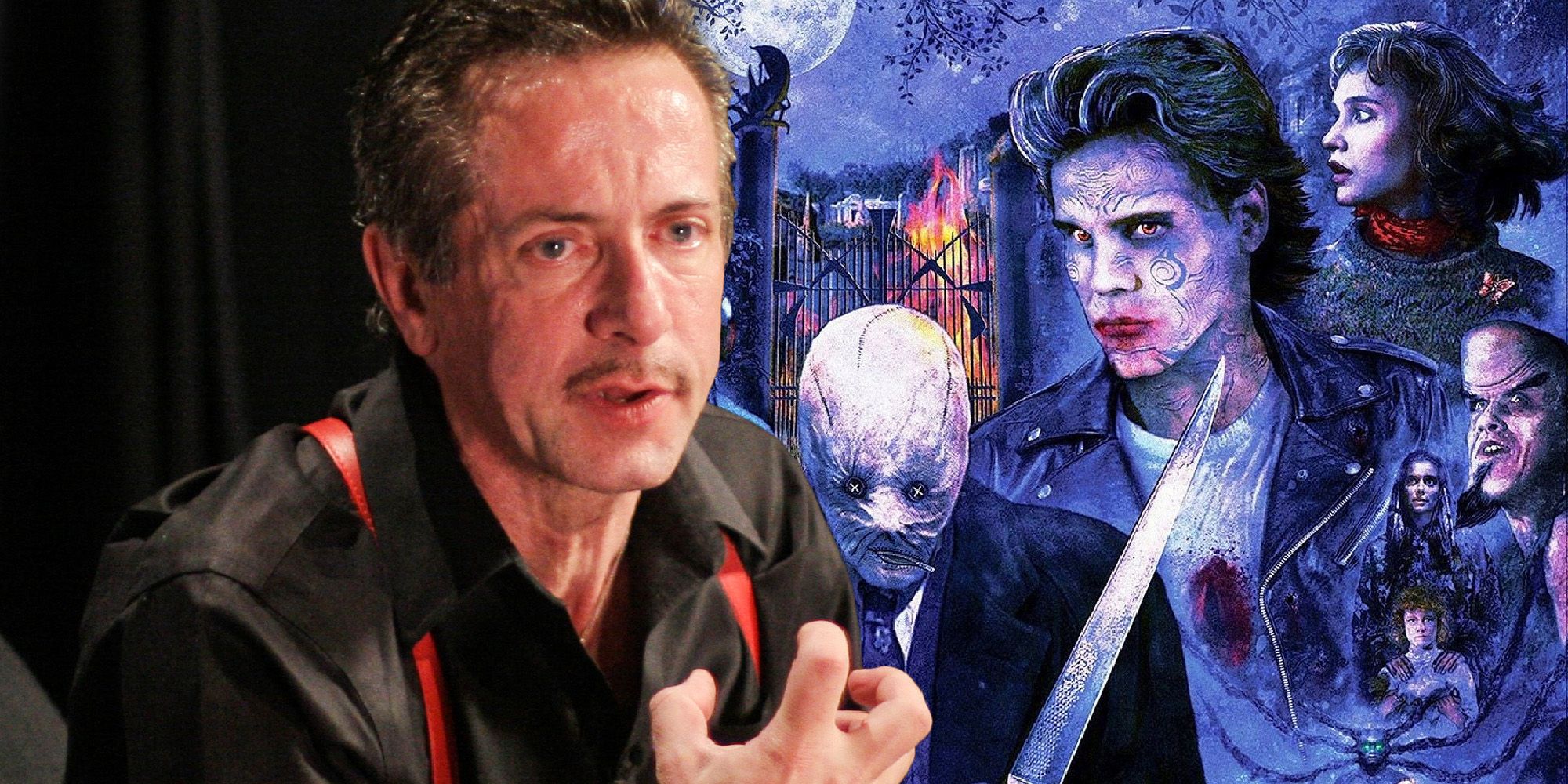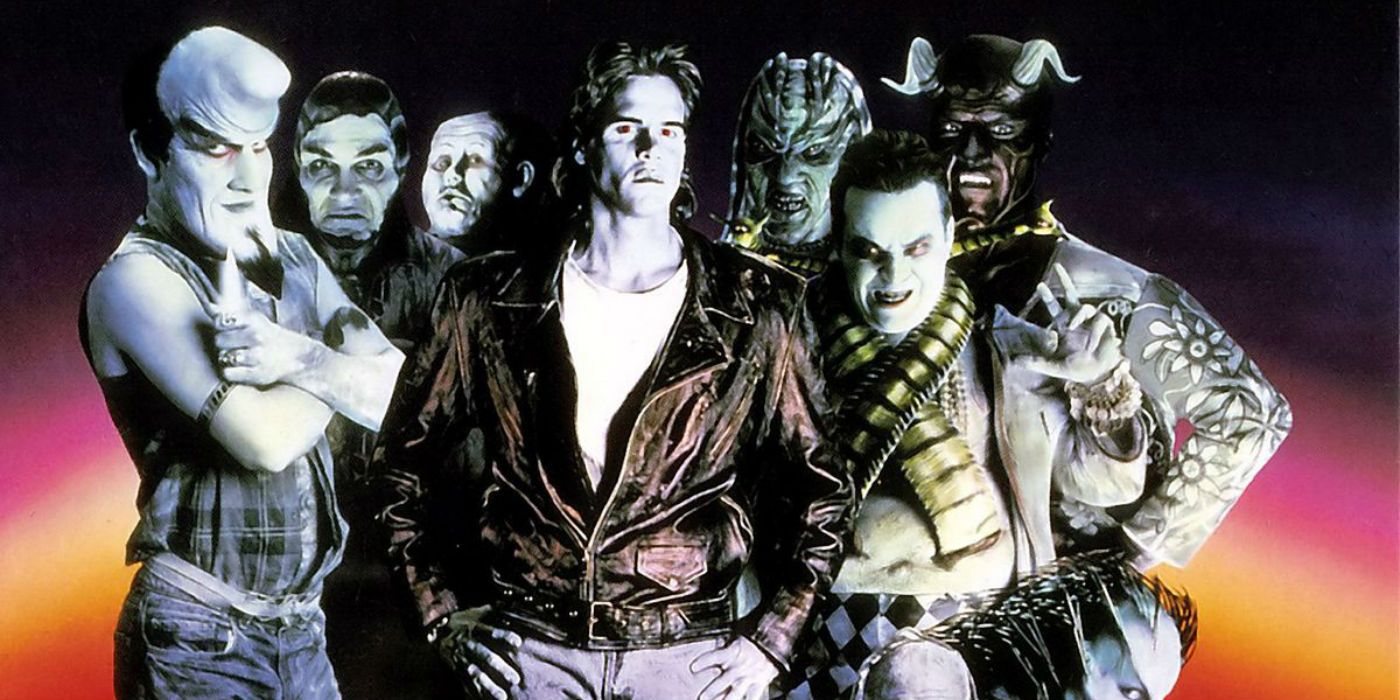Clive Barker's Nightbreed has risen to cult film status over the years for its strange concoction of grotesque imagery and fantastical, even heartwarming, themes. Unfortunately, the original release was plagued by studio interference and mishandled marketing, resulting in a critical and financial failure that stopped Barker from creating the trilogy he had initially desired to make.
Nightbreed became the victim of so much studio meddling that even its title signaled the producers' iron-fisted grip on the project. Based on Barker's novella Cabal, first published in 1988, the film was subjected to a name change when Morgan Creek Productions, owned by then-chairman of 20th Century Fox Joe Roth, insisted on a more commercially friendly title. It was the first of many concessions Barker would make with the studio that would lead to the eventual downfall of his ambitious vision, at least to the public eye at that time.
Barker chose to adapt Cabal because he felt it had a tight plot structure well-suited for film, but he ironically established grander plans in the screenwriting process. Whereas the novella is focused on the protagonist's journey, Barker wanted the film (and thus the planned trilogy) to more fully explore the world of the Nightbreed creatures. The theatrical cut of Nightbreed was and is still criticized for its uneven story flow, but luckily Shout! Factory released a director's cut of the film in 2014 with an additional 40 minutes of re-edited footage to make the film's narrative less of the mangled mess Morgan Creek pushed it to be. The extra footage hints at Barker's original grandiose plan for an epic horror saga, containing an alternate ending that implies that the characters will return as part of a prophecy.
Why Barker Never Made His Planned Nightbreed Trilogy
The story of Nightbreed's production troubles is a classic tale of a fraught relationship between filmmaker and producer. On paper, it may seem as if Barker had significant creative control over the project as both director and screenwriter. In reality, Morgan Creek's producers were constantly questioning and undermining Barker's vision, including the very premise of the entire film. Barker envisioned Nightbreed as an ambitious, far-out epic that heavily incorporated elements of the fantasy genre, wanting to create the "Star Wars of horror movies," as he stated in the October 1989 issue of Fangoria magazine. This approach confounded the marketing folks at Morgan Creek, who couldn't seem to wrap their heads around the concept of a fantasy-horror movie and tried selling the film as a slasher movie with a notable absence of monsters in commercial footage.
Perhaps the most egregious of all the studio's judgments was the inherent misunderstanding of the film's central conflict. Nightbreed (as well as its source material) is ultimately about social outcasts accepting their roles as freaks and bonding together to fight back against the humans who want to hunt them down. The creatures are the sympathetic ones, while the murderous Dr. Decker, played by David Cronenberg, is the true monster of the story. Alas, in an interview with Cinefantastique in July 1990, Barker lamented:
"Someone at Morgan Creek said to me, 'You know, Clive, if you're not careful some people are going to like the monsters.' Talk about completely missing the point! Even the company I was making the film for couldn't comprehend what I was trying to achieve!"
Even though financial disaster kept Barker from making his trilogy, Nightbreed has the potential for a new life in SyFy's newly planned television series. Although Morgan Creek - now rebranded as Morgan Creek Entertainment Group - is still backing the project, Clive Barker is also developing the series, with Josh Stolberg (Jigsaw, Spiral) set to write and Michael Dougherty - whose sack-headed creation Sam from Trick 'r Treat resembles Dr. Decker's serial killing guise - hired as director. Cabal still offers plenty of material to springboard off of, while the sensibilities of modern audiences more used to the idea of horror-fantasy (see: Guillermo Del Toro) provides ripe ground for a comeback of Nightbreed.


